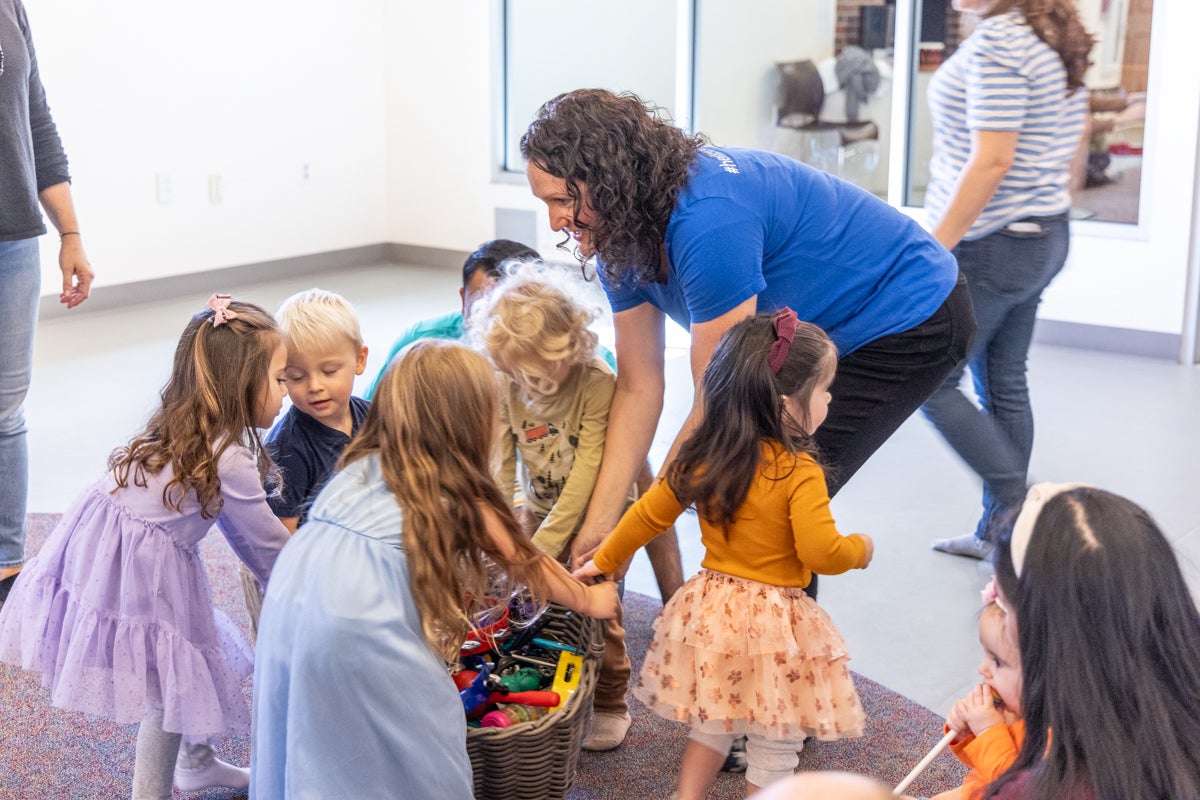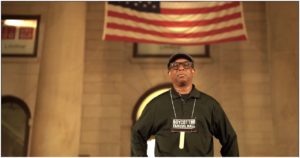Building team spirit
Rebecca Parlakian, senior director of programs for Zero To Three, a nonprofit organization focused on supporting healthy development of babies and toddlers, said one study conducted at San Diego State University found that a music intervention program increased preschool children’s social and emotional skills when they interacted with their peers. Parlakian cited a separate study that found that the children in a music and rhythm group demonstrated an increased willingness to help one another and to cooperate on a problem-solving task.
“The cooperative experience of music-making together in some ways set children up to transfer that perspective and that capacity to other situations,” she said.
Wasden said she has observed that children in her class become better listeners and demonstrate a willingness to cooperate and work together on projects, including helping to put items away after class.
“It’s really a process of development that doesn’t just happen in one semester, it happens over years, and it’s just so exciting to watch and be part of,” she said.
Julie Sansone, the global marketing and communications manager for Music Together Princeton Lab School, said a great deal of research went into creating Music Together.
“What that means is we base the entire curriculum and everything that happens in class on research in early childhood development, in music development from a variety of researchers,” she said. “Music is a part of everyday life, part of being a human, and it’s expressed in many different ways throughout our lives.”
Sarah Orfe, director of the Music Together Princeton Lab School, said it’s vital for parents to participate with their children in these creative programs. She said it’s wonderful when mom or dad sings to their children.
“And it doesn’t matter how well the parent sings to them, if they are terrible singers, the child is still learning how to have a joy for music,” she said.
Jason Krane, from East Windsor, said he and his son Wyatt, who will be 2 in December, are thrilled to be in the mixed-family class at Music Together.
“He gets so much out of it, he goes home and sings the songs, we hear him humming, and the other day he was beating his pillow to the drums, so he’s very much engaged and loves it.”
Jason Krane and Wyatt, 22 months (center), dance with Music Together Princeton Lab School teacher Norah Wasden at a class for young children and their parents. (Kimberly Paynter/WHYY)
He said that when Wyatt goes to daycare, he has a great time. “They tell me they want to have him in the class because he’s a singer and a dancer,” he said.
Nicole Domanski said the program has helped her raise her son Hudson, who is 2.
“Transitions can be hard to get our pajamas on, to go into the bathtub, so using song has taught us to make our normal life things a little bit easier,” she said.
Orfe said every semester parents get a set of music to take home.
“We hope that they are listening to that at home, they’re playing those songs and they’re singing those songs,” she said. “Because we know the heart and the brain respond differently to the sung voice than to pre-recorded music.”
Editor’s Note: This story is part of a series that explores the impact of creativity on student learning and success. WHYY and this series are supported by the Marrazzo Family Foundation, a foundation focused on fostering creativity in Philadelphia youth, which is led by Ellie and Jeffrey Marrazzo. WHYY News produces independent, fact-based news content for audiences in Greater Philadelphia, Delaware and South Jersey.
Parents dance the salsa with their children at the Music Together Princeton Lab School. (Kimberly Paynter/WHYY)







